Oolong Tea For Weight Loss: 9 Easy Brewing Methods
Boost your metabolism and shed the excess fat by consuming this Chinese beverage.
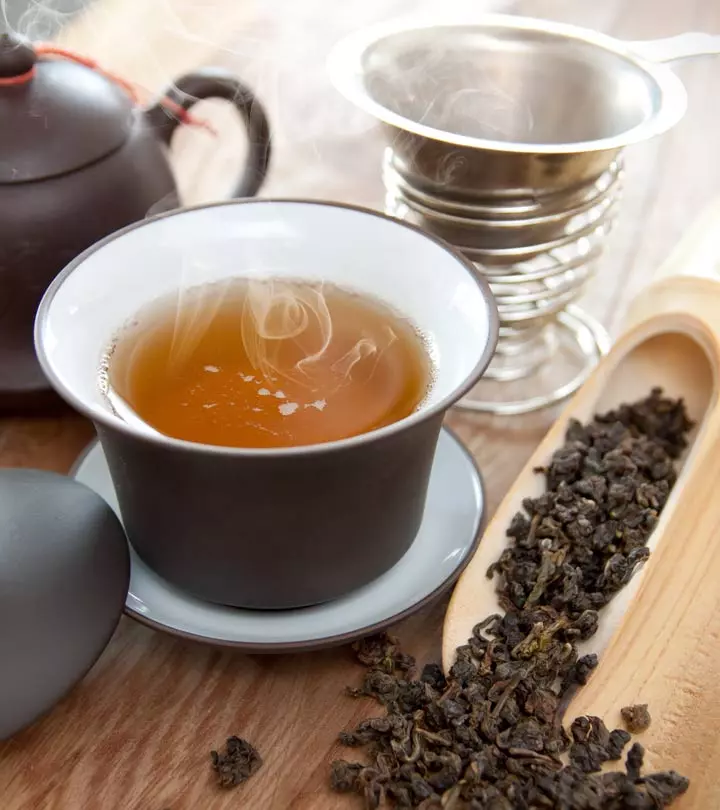
Image: i Stock
There are many benefits of drinking oolong tea for weight loss. This tea can help people lose weight and lower cholesterol levels. Studies showed that oolong tea could increase metabolism, improve fat mobilization, prevent fat cell proliferation, and maintain a healthy weight. In addition, the tea is rich in antioxidants and can boost immunity. The following article discusses the benefits of oolong tea, its nutritional profile, how to make it, and possible side effects. Take a look.
In This Article
What Is Oolong Tea?
Oolong tea is a traditional Chinese beverage. It is obtained from theCamelia sinensis plant. Due to enzymatic oxidation, the tea leaves undergo fermentation, which turns the green leaves (no fermentation) to semi brown (semi-fermentation) and then black tea (full fermentation) leaves. Oolong tea is made of semi-fermented tea leaves and has a distinct color, taste, and texture (1).
 Trivia
TriviaKey Takeaways
- Oolong tea helps prevents fat cell reproduction and aids weight loss due to its rich antioxidant content.
- This Chinese beverage also helps lower cholesterol levels, relieves stress, strengthens bones, and boosts the immune system.
- However, excess consumption may cause insomnia, anxiety, nausea, and headache.
Nutritional Profile Of Oolong Tea- A Brief Review
Like other teas,oolong tea is also loaded with vitamin, minerals, and antioxidants, which possess a lot of health and wellness benefits.
A small cup (100 g) of brewed oolong tea contains 16 mg of caffeine along with loaded antioxidants like theaflavins, thearubigins, and epigallocatechin gallatei A plant compound that reduces inflammation, helps weight loss, and prevents heart and brain disease. (EGCG) (2).
Oolong tea possesses properties that can lower lipid and fight obesity. Oolong tea may help accelerate metabolism, improve fat mobilization, prevent fat cell proliferation, and help maintain weight loss. It also helps to build immunity as it is loaded with more antioxidants than green tea. Read on to know why Oolong tea is best for weight loss, when to consume it, methods to prepare, and much more.

Read on to know why oolong tea is best for weight loss, when to consume it, methods to prepare, and much more.
Why Oolong Tea For Weight Loss?
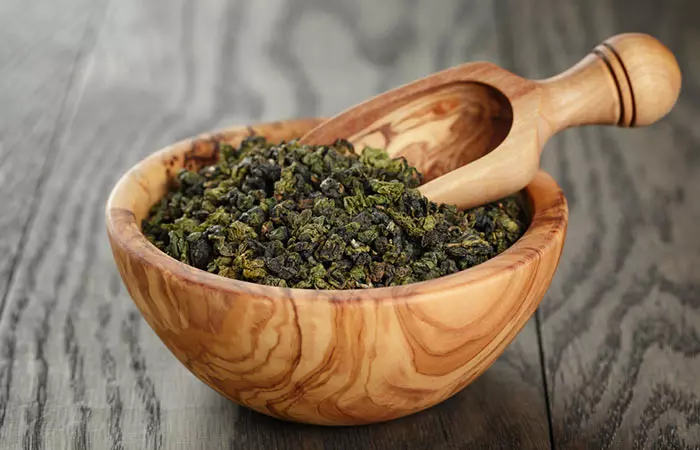
Oolong tea and green tea are both obtained from Camellia sinensis. But the difference between the two lies in the fact that oolong leaves, after being plucked, are dried under the sun and then partially oxidized before being curled or twisted. Green tea has many benefits of its own, but because of partial oxidation, Oolong tea contains most of its antioxidant and lipid-lowering properties. The antioxidants help to scavenge the harmful free oxygen radicals. Free oxygen radicals can lead to weight gain by disrupting normal cell function and metabolism.
The polyphenols and antioxidants in oolong tea play a profound role in weight loss by enhancing metabolism and fat burning capacity. In a study, 2 g of oolong tea was given to 102 Chinese obese individuals 4 times in a day for 6 weeks and their body fat percentage was measured. They showed a commendable weight loss (1-3 kg) in the time span and were able to decrease waistline too (3).
Another study revealed that full brewed oolong tea increases energy expenditure and fat oxidation. Metabolic rate also increased by 3-7.2% over 24 hours. The possible cause stated was the combined effect of caffeine and EGCG, which increased thermogenesisi A process of producing heat in warm-blooded animals in specialized tissues like adipose tissue and skeletal muscle. and thereby fat oxidation(4).
How Oolong Tea Promotes Weight Loss?
- The anti-obesity mechanism of oolong tea is due to EGCG and theaflavins. They modulate energy balance and maintain carbohydrate and lipid metabolism, which facilitates enzymatic lipid oxidation(5).
- Tea catechins also inhibit lipogenesis by downregulating the fatty acid synthase enzyme (an enzyme complex responsible for fatty acid synthesis)(6).
- The polyphenols present in oolong tea can help induce weight loss and have anti-inflammatory effects (7).
- It can boost metabolism by 10% and help to burn tummy and upper arm fat. Oolong tea contains caffeine and epigallocatechin (EGCG), both of which work together to accelerate fat oxidation and help in shedding pounds and slimming. The caffeine-catechin combination in oolong tea enhances noradrenaline lipolysis and reduces pancreatic lipase activity, which has an anti-obesity effect (8).
- Tea consumption over a period, especially the oolong variety, helped reduce the prevalence rate of type 2 diabetes. Fully brewed oolong tea significantly reduces plasma glucose and fructosaminei A substance created when sugar in the blood binds with proteins and is used to test the sugar level of people with diabetes. concentration over a period (9).
- Another popular anti-obesity mechanism of oolong tea is digestive enzyme inhibition. The polyphenols in oolong tea inhibit several digestive enzymes, which lower the rate of absorption of sugars and fats from the gut, thereby controlling hunger pangs and binging (10).
- The polyphenols in oolong tea act on undigested carbs in the intestine to produce short-chain fatty acids (SCFAs), which travel down to the liver and regulate biochemical enzymatic reactions. This, in turn, leads to fatty acid oxidation (11).
- Another possible mechanism of polyphenols is the alteration of gut microbiota. Our gut contains trillions of bacteria that strengthen our digestive system. High fat and high sugar diets destroy the good bacteria ecosystem, which alters digestion and aids weight gain. The polyphenols in oolong tea surpass absorption in the entire gut and react with the microbiota to form short bioactive metabolites that improve digestion and enhance the weight loss process(12).
Oolong tea is a calorie-free beverage and has different flavors. Therefore, you can drink it without having to think of consuming calories.Aim to drink 2-3 cups of oolong tea to reap its benefits. Let’s find out how to prepare it.
How To Prepare Oolong Tea For Weight Loss?
Simply put, it’s easy to make Oolong tea. You just have to buy a good quality Oolong tea. Here are few best methods of preparing it for weight loss.
1. Method 1 – Oolong Tea Bag
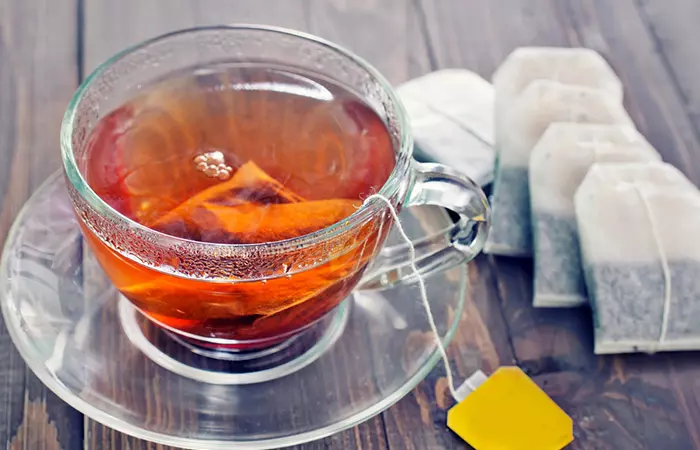
Ingredients
- 1 Oolong tea bag
- 1 cup water
How To Prepare
- Bring a cup of water to a boil.
- Pour it into a cup.
- Add the Oolong tea bag and let it steep for 5-7 minutes.
- Take out the Oolong tea bag before drinking.
2. Method 2 – Oolong Tea Leaf
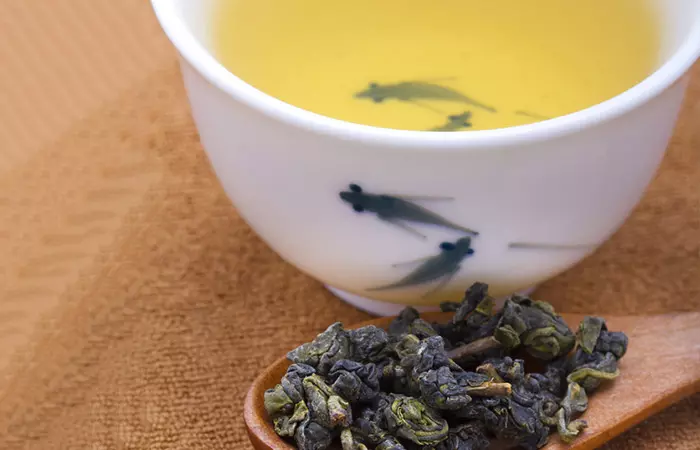
Ingredients
- 1 teaspoon Oolong tea leaf
- 1 cup water
How To Prepare
- Bring a cup of water to a boil.
- Remove from the flame as soon as it boils.
- Add Oolong tea leaves and put a lid on.
- Let it steep for 5 minutes.
- Strain the tea into a cup before drinking.
3. Method 3 – Oolong Tea Powder
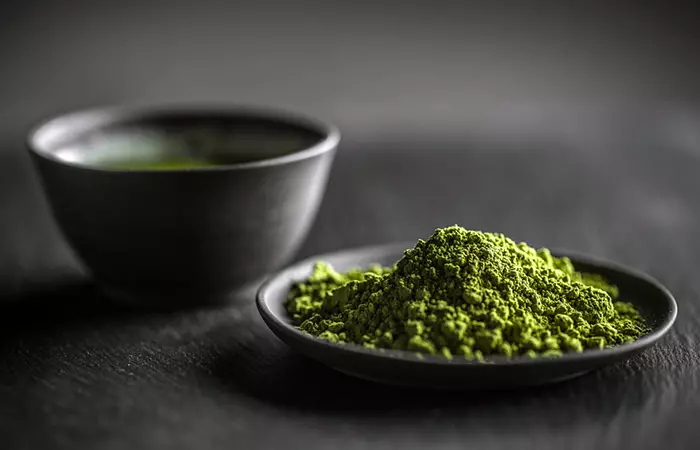
Ingredients
- 1 teaspoon Oolong tea powder
- 1 cup water
How To Prepare
- Bring a cup of water to a boil.
- Pour the boiled water into a cup.
- Add the Oolong tea powder and let it steep for 2-3 minutes.
- Strain the tea before drinking.
4. Method 4 – Oolong Tea And Lemon Juice
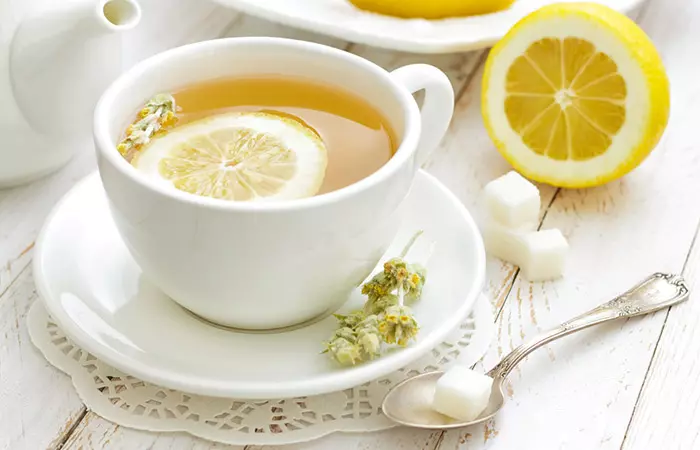
Ingredients
- 1 teaspoon Oolong tea leaves
- 1 cup water
- 1 tablespoon lemon juice
How To Prepare
- Add Oolong tea leaves into a cup of hot water.
- Let it steep for 5-7 minutes.
- Strain the tea and add lemon juice.
- Stir well before drinking.
5. Method 5 – Oolong Tea & Green Tea
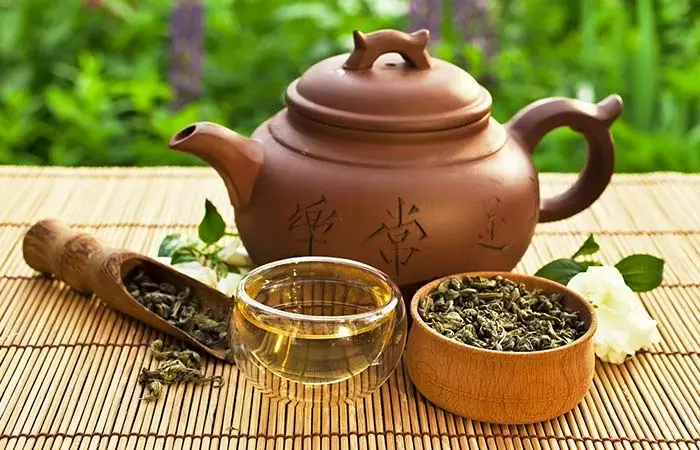
Ingredients
- 1 teaspoon Oolong tea
- 1 teaspoon green tea
- 1 cup water
How To Prepare
- Bring a cup of water to a boil and remove from the flame immediately.
- Add Oolong tea and green tea.
- Let it steep for 5 minutes.
- Strain before drinking.
6. Method 6 – Oolong Tea & Cinnamon
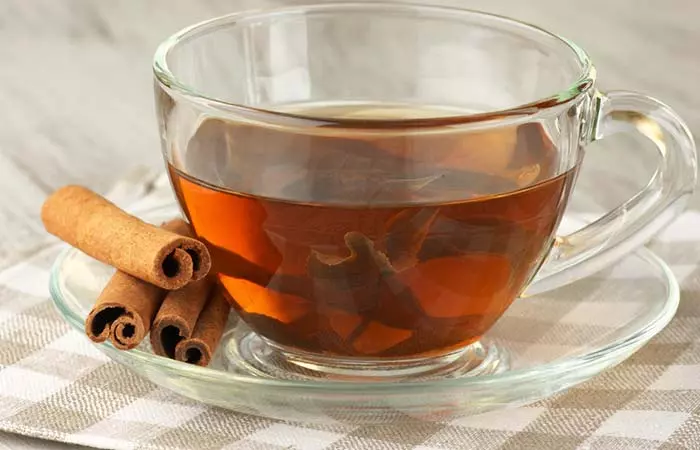
Ingredients
- 1 Oolong tea bag
- 2 inch Ceylon cinnamon stick
- 1 cup water
How To Prepare
- Soak the cinnamon stick in a cup of water overnight.
- In the morning, boil the water with the cinnamon stick.
- Wait till the water level drops to its half.
- Remove from the flame and add the Oolong tea bag.
- Let it steep for 2-3 minutes.
- Remove the cinnamon stick and the tea bag before drinking.
 Quick Tip
Quick Tip7. Method 7 – Oolong Tea With Ginseng
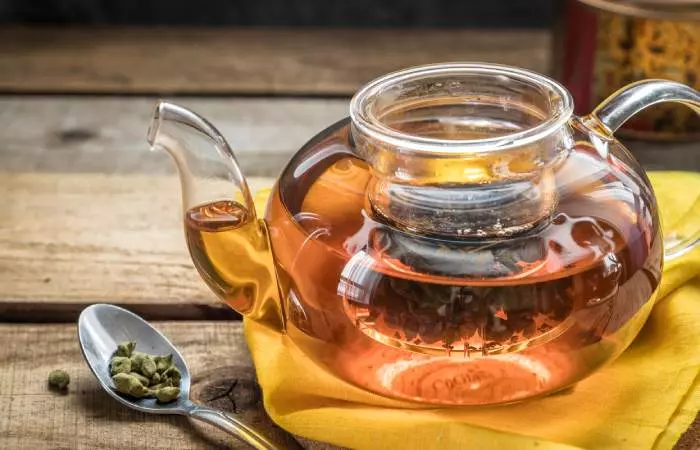
Ingredients
- 1 teaspoon Oolong tea
- 1 teaspoon ginseng tea (with added ginseng extract)
- 1 cup water
How To Prepare
1. Bring a cup of water to a boil and remove from heat immediately.
2. Add Oolong tea and ginseng tea.
3. Let the tea steep for 5 minutes.
4. Strain the tea before drinking.
8. Method 8 – Oolong Tea With Honey
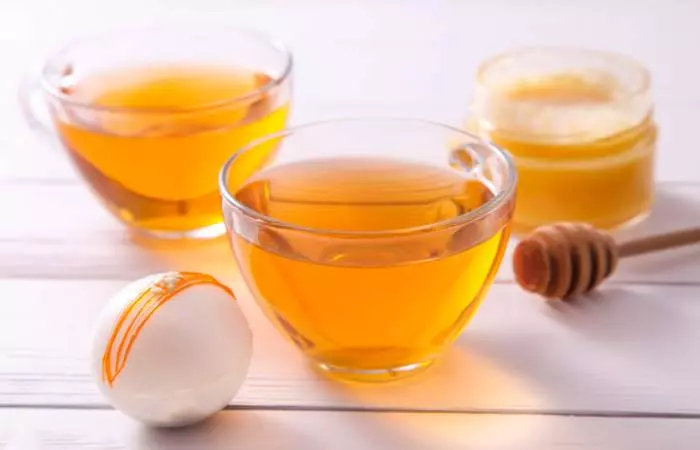
Ingredients
- 1 teaspoon Oolong tea leaves
- 1 teaspoon honey
- 1 cup water
How To Prepare
1. Boil a cup of water then turn off the heat immediately.
2. Add Oolong tea leaves to the hot water.
3. Let the tea steep for 3-5 minutes, allowing the flavors to infuse.
4. Add a teaspoon of honey and stir well until it dissolves.
5. Strain the tea before serving.
9. Method 9 – Oolong Tea With Ginger
Ingredients
- 1 teaspoon Oolong tea leaves
- 1 teaspoon ginger, grated
- 1 cup water
How To Prepare
- Boil a cup of water and turn off the heat.
- Add Oolong tea leaves and grated ginger to it and steep for 5-7 minutes.
- Strain the tea and enjoy!
Connor, a blogger, shared his excitement about trying a Baozhong oolong tea from Nantou County, Taiwan. He said, “The first steep is very light and floral, and the color of the tea is absolutely stunning (I love light teas like that). It’s very smooth and almost creamy in its texture. The floral flavor is a lot like the smell – very reminiscent of lilacs (i).”
These quick methods of preparing Oolong tea are the best ways to consume it for weight loss. But now the obvious question is when to drink Oolong tea for best results? Here is your answer.
When To Consume Oolong Tea For Weight Loss?
- Consume Oolong tea in the morning with breakfast.
- Oolong tea can also be consumed 30 minutes before lunch or dinner.
- You can consume Oolong tea with your evening snack.
To get better results, you should buy a good quality Oolong tea. Here are few best brands of Oolong tea available in the market.
Oolong Tea Brands For Weight Loss

- Bigelow Oolong Tea
- China Fujian Oolong Tea
- Foojoy Wuyi Oolong Tea
- Prince Of Peace Oolong Tea
- Organic Oolong Tea
- Twinings China Oolong Tea
- Golden Tips Oolong Tea
- Tie Guan Yin Oolong Tea
- The Tao Of Tea Black Dragon Oolong Tea
- Ceylon Organic Oolong Tea
- Stash Oolong Tea
With so many varieties of Oolong tea, what is the best variety of Oolong tea for weight loss? Here is your answer.
Oolong Tea Variety For Weight Loss
There are two varieties of Oolong tea—green Oolong tea and dark Oolong tea. Both are beneficial for weight loss. The only difference is while the green Oolong tea is less oxidized while the dark Oolong tea is fully oxidized and roasted. Where can you buy them? Here is a list of online stores where you can buy good quality Oolong tea.
Where To Buy Oolong Tea For Weight Loss?
You can buy these Oolong tea brands online at Amazon, Artoftea, eBay, Adagio, Bigelowtea, Teabox, and Teavan.
Apart from losing weight, you can reap the following benefits by consuming Oolong tea regularly.
Other Oolong Tea Benefits

1. Relieves Stress
those with anxiety and stress issues. Stress is one of the causes of weight gain. Oolong tea helps to relieve stress by improving the serotonin levels (feel good hormone) and preventing depression that leads to emotional eating.
2. Promotes Heart Health
Oolong tea helps to reduce the bad cholesterol and triglyceridei A type of converted fat that is stored in the body when you consume extra calories, sugar, and alcohol. levels. It also increases the plasma adiponectini A hormone released by fat tissues to regulate insulin sensitivity and inflammation, whose low levels are associated with obesity. levels and reduces the risk of diabetes, coronary artery disease, and obesity.
3. Boosts The Immune System
Loaded with antioxidants, Oolong tea helps to boost immunity by neutralizing the free oxygen radicals. It prevents cellular damage and microbial infections too.
4. Strengthens The Bones
Oolong tea contains calcium and magnesium that prevents loss of bone mass. Consuming Oolong tea regularly has been found to strengthen the bones, prevent osteoporosis, arthritis, and improve bone health.
5. Fights Cancer
Since Oolong tea is an excellent source of antioxidants, drinking Oolong tea can help fight cancer. Antioxidants prevent DNA damage and control cell proliferation.
6. Boosts Brain Function
Like coffee Oolong tea contains caffeine that helps to improve alertness and brain function. It rejuvenates the brain cells and prevents the feeling of tiredness and fatigue.
7. Improves Skin Health
Consuming green tea regularly can help prevent various skin diseases such as eczema, atopic dermatitisi A chronic skin condition characterized by patches of inflamed, dry and itchy skin inside the elbow and the front of the neck. , skin redness, microbial infections, itchy and flaky skin. The antioxidants help to avoid premature aging of the skin. Your skin will glow with health.
8. Protects Teeth
The acids produced by bacteria in teeth causes decay. The antioxidants present in Oolong tea helps to prevent tooth decay by balancing the pH levels and inhibiting microbial growth.
As the saying goes, anything in excess is harmful. Although Oolong tea aids weight loss and improves overall health, you must keep a check on the quantity of consumption. So, how much is too much? Here you go.
How Much Oolong Tea To Drink For Weight Loss?
You can drink this calorie-free drink 2-3 times a day. Do not over do it in the hope of losing weight quickly. Oolong tea overdose can cause the following problems.
Oolong Tea Side Effects
Consuming too much Oolong tea can cause anxiety, dehydration, insomnia, increased heart rate, depression, frequent urination, upset stomach, nausea, headache, skeletal fluorosis, kidney stones, allergy, glaucoma, and anemia. You should also take the following points into consideration before drinking Oolong tea for weight loss.
Precautions

- Talk to your doctor or your dietician before starting to drink oolong tea.
- Do not drink more than 2-3 cups of Oolong tea per day.
- Avoid drinking Oolong tea if you are pregnant or breastfeeding.
- If you are on a herbal supplement, avoid consuming Oolong tea.
- If you are on medication for depression, heart disease, or stomach ulcer, talk to your physician before drinking Oolong tea to avoid complications.
- If you are suffering from osteoporosis, do not consume more than 1 cup of Oolong tea per day, as Oolong tea can flush out calcium through urine.
Will drinking Oolong tea help you lose weight? Yes! But if you want to make your weight loss permanent then follow these simple weight loss tips.
Useful Weight Loss Tips

- Eat a lot of green leafy veggies that will provide your body with dietary fiber, vitamins, minerals, and complex carbs.
- Eat at least 2-3 servings of fruits per day.
- Include at least one source of protein in your every meal.
- Avoid eating junk food too often.
- Treat yourself once in two weeks.
- Stop drinking aerated and artificially sweetened drinks.
- Don’t over consume alcohol.
- Workout and exercise regularly. You can play a sport, workout at the gym, dance, learn kickboxing, etc.
- Relieve yourself of stress. Develop a hobby or do yoga to relax.
Clearly, oolong tea is quite useful when it comes to weight loss. But how does it compare to other teas? Find that out in the next section.
Comparative Analysis Of Oolong Tea And Other Teas
Compared to other teas, such as green and black tea, oolong tends to have a slightly higher caffeine content (14). Research suggests that caffeine may promote thermogenesis, the process by which the body generates heat and burns calories (15). So, the increased caffeine content in oolong tea may help you burn more calories, potentially making it more effective for weight loss compared to green or black tea. When it comes to flavor, green tea offers a more delicate and light flavor profile, while black has a more robust taste. Oolong tea strikes a balance between the two, offering a rich flavor that might be more appealing to some tea drinkers. Ultimately, the choice between these teas comes down to personal preference.
Infographic: Oolong Tea Preparation, Benefits, Dosage
Oolong tea is known for the wide array of health benefits it offers. It is majorly preferred by many for weight loss. The following infographic provides information about oolong tea preparation, benefits, and dosage. Check it out! Illustration: StyleCraze Design Team
Consuming oolong tea for weight loss is becoming popular worldwide, and rightly so. This Chinese beverage, the leaves of which come from the same plant as green tea, retains more vitamins and antioxidants than green tea. Studies suggest that this tea is highly effective for weight loss by improving metabolism, inhibiting the activity of several enzymes (thus, impacting the absorption of fats and carbs), and reducing the risk of high blood sugar levels. Also, oolong tea also helps uplift mood, reduce cholesterol and triglyceride levels, and boost immunity by reducing oxidative stress. However, do not drink this tea more than 2-3 times a day as it may cause anxiety, depression, dehydration, insomnia, and other side effects.
Frequently Asked Questions
What is the best time to drink oolong tea?
You can drink oolong tea in the morning with breakfast, or half an hour before meals.
Can you sleep after drinking oolong tea?
Yes, it helps you unwind, relax, and sleep well through the night.
Is oolong tea good for PCOS?
Yes, animal studies suggest that the catechins present in oolong tea may alleviate ovarian dysfunction and inflammation of the uterus in mice with PCOS (16). However, further studies are needed to support this claim.
Is oolong tea safe for the kidneys?
Yes, consuming oolong tea positively impacts intentional microflora and assists kidney functions when experimented on salt-diet-induced hypertension in mice (17).
Can oolong tea be brewed in different ways to enhance its weight loss properties?
Yes, ensure that you brew oolong tea at 190 degrees Fahrenheit for 3-5 minutes to enhance its nutritional properties. Using very high temperatures can reduce the tea’s nutritional benefits and make it taste bitter.
How does oolong tea compare to other weight loss supplements or diet aids?
Oolong tea is low in calories and contains natural fat-burning compounds and antioxidants that may aid in weight loss. It improves insulin sensitivity, which makes it easy to manage weight as compared to supplements that may include artificial ingredients (18).
Illustration: Oolong Tea For Weight Loss
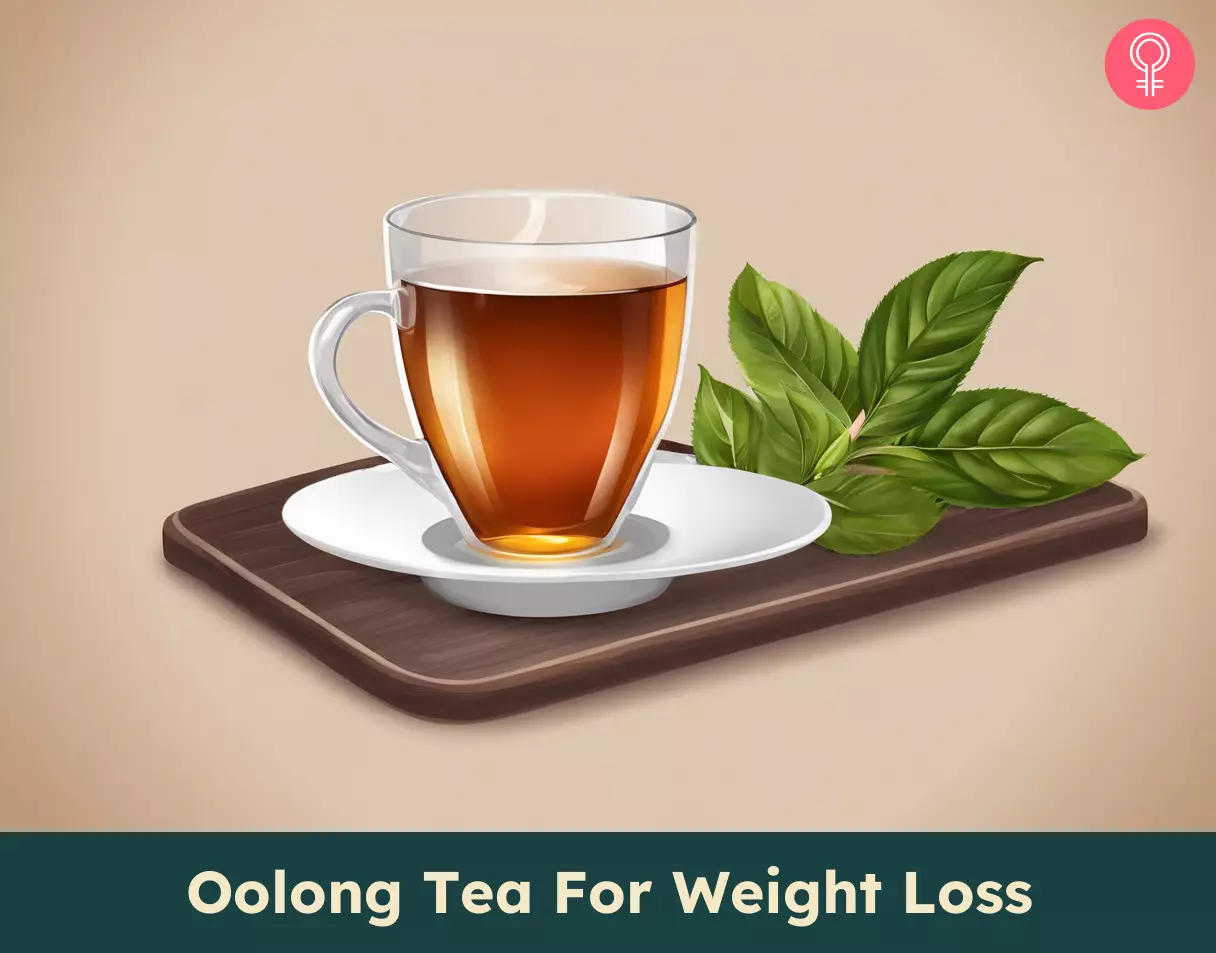
Image: Stable Diffusion/StyleCraze Design Team
Oolong tea is not just a beverage choice but also has some amazing properties that help you lose weight and lead a happy and healthy life. Check out the video below to know more.
Personal Experience: Source
StyleCraze's articles are interwoven with authentic personal narratives that provide depth and resonance to our content. Below are the sources of the personal accounts referenced in this article.
i. Taiwan ~ Baozhong Oolong Tea | What-Chahttps://thesteepedleaf.wordpress.com/2018/03/09/taiwan-baozhong-oolong-tea-what-cha/
References
Articles on StyleCraze are backed by verified information from peer-reviewed and academic research papers, reputed organizations, research institutions, and medical associations to ensure accuracy and relevance. Read our editorial policy to learn more.
- Tea and health: Studies in humans
https://pmc.ncbi.nlm.nih.gov/articles/PMC4055352/ - Tea Consumption and Risk of Type 2 Diabetes: A Meta-Analysis of Cohort Studies
https://pmc.ncbi.nlm.nih.gov/articles/PMC2669862/ - Beneficial effects of oolong tea consumption on diet-induced overweight and obese subjects
https://pubmed.ncbi.nlm.nih.gov/19271168/ - Oolong Tea Increases Metabolic Rate and Fat Oxidation in Men
https://jn.nutrition.org/article/S0022-3166(22)14493-7/fulltext - Production, Quality, and Biological Effects of Oolong Tea (Camellia sinensis)
https://www.tandfonline.com/doi/abs/10.1080/87559129.2010.518294 - Mechanisms of hypolipidemic and anti-obesity effects of tea and tea polyphenols
https://onlinelibrary.wiley.com/doi/abs/10.1002/mnfr.200500138 - Green tea, black tea, and oolong tea polyphenols reduce visceral fat and inflammation in mice fed high-fat, high-sucrose obesogenic diets
https://pubmed.ncbi.nlm.nih.gov/25031332/ - The effects of catechin rich teas and caffeine on energy expenditure and fat oxidation: a meta-analysis
https://pubmed.ncbi.nlm.nih.gov/21366839/ - Antihyperglycemic Effect of Oolong Tea in Type 2 Diabetes
https://diabetesjournals.org/care/article/26/6/1714/26374/Antihyperglycemic-Effect-of-Oolong-Tea-in-Type-2 - A Review on the Weight-Loss Effects of Oxidized Tea Polyphenols
https://pmc.ncbi.nlm.nih.gov/articles/PMC6099746/ - AMPK: positive and negative regulation, and its role in whole-body energy homeostasis
https://pubmed.ncbi.nlm.nih.gov/25259783/ - The gut microbiota: A key factor in the therapeutic effects of (poly)phenols
https://pubmed.ncbi.nlm.nih.gov/28483461/ - Oolong tea extract alleviates weight gain in high-fat diet-induced obese rats by regulating lipid metabolism and modulating gut microbiota
https://pubmed.ncbi.nlm.nih.gov/35179170/ - Theanine and Caffeine Content of Infusions Prepared from Commercial Tea Samples
https://pmc.ncbi.nlm.nih.gov/articles/PMC4787341/ - Normal caffeine consumption: influence on thermogenesis and daily energy expenditure in lean and postobese human volunteers
https://pubmed.ncbi.nlm.nih.gov/2912010/ - Catechins from oolong tea improve uterine defects by inhibiting STAT3 signaling in polycystic ovary syndrome mice
https://pubmed.ncbi.nlm.nih.gov/33292347/ - Green and Oolong Tea Extracts With Different Phytochemical Compositions Prevent Hypertension and Modulate the Intestinal Flora in a High-Salt Diet Fed Wistar Rats
https://www.frontiersin.org/journals/nutrition/articles/10.3389/fnut.2025.892801/full - Effects and Mechanisms of Tea for the Prevention and Management of Diabetes Mellitus and Diabetic Complications: An Updated Review
https://pmc.ncbi.nlm.nih.gov/articles/PMC6617012/
Read full bio of Madhu Sharma
Read full bio of Ravi Teja Tadimalla
Read full bio of Aparna Mallampalli






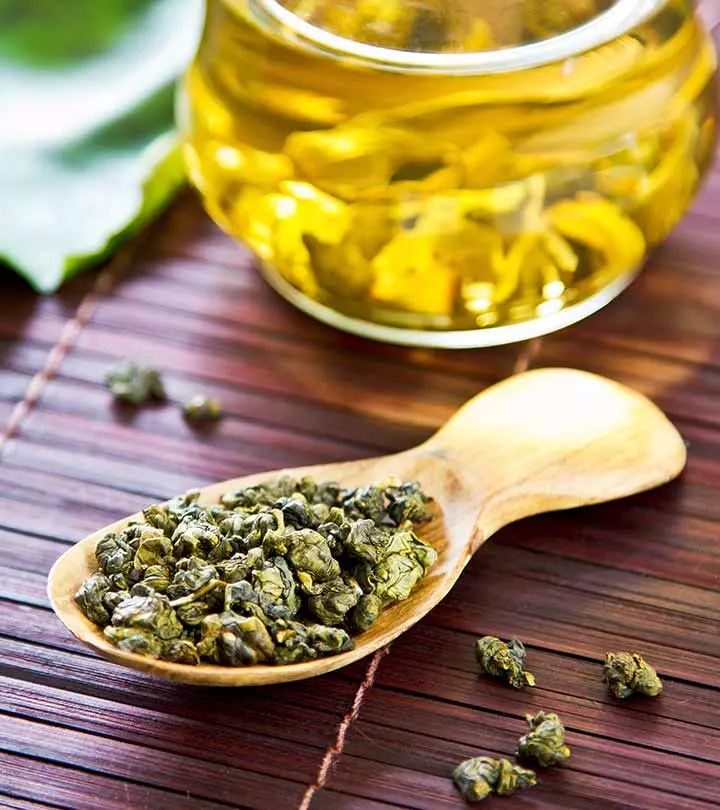

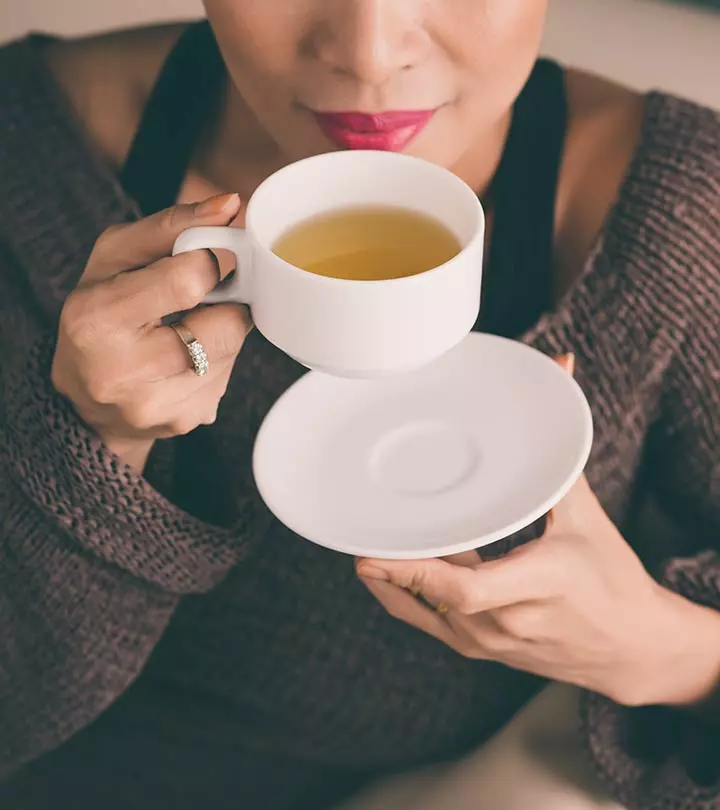
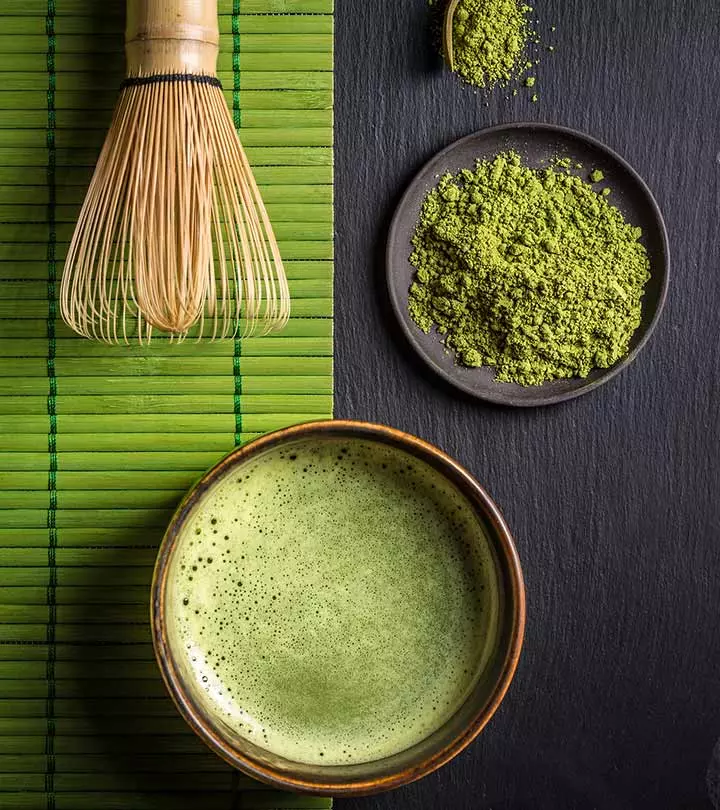
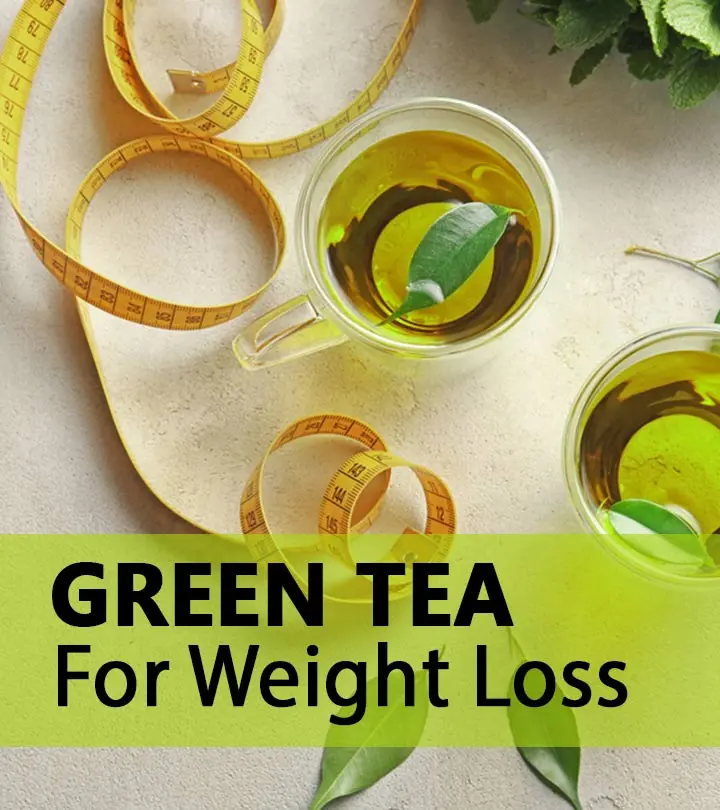
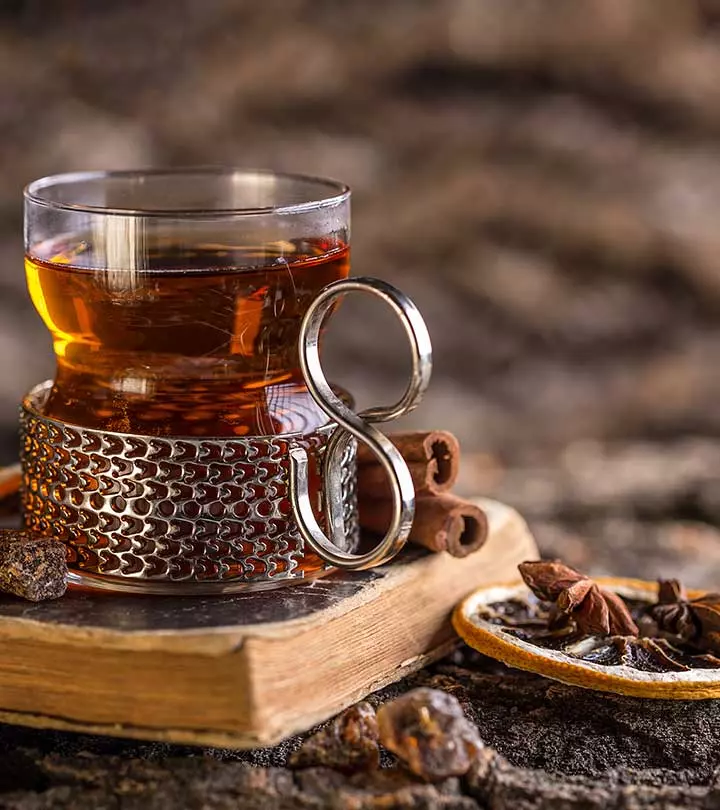
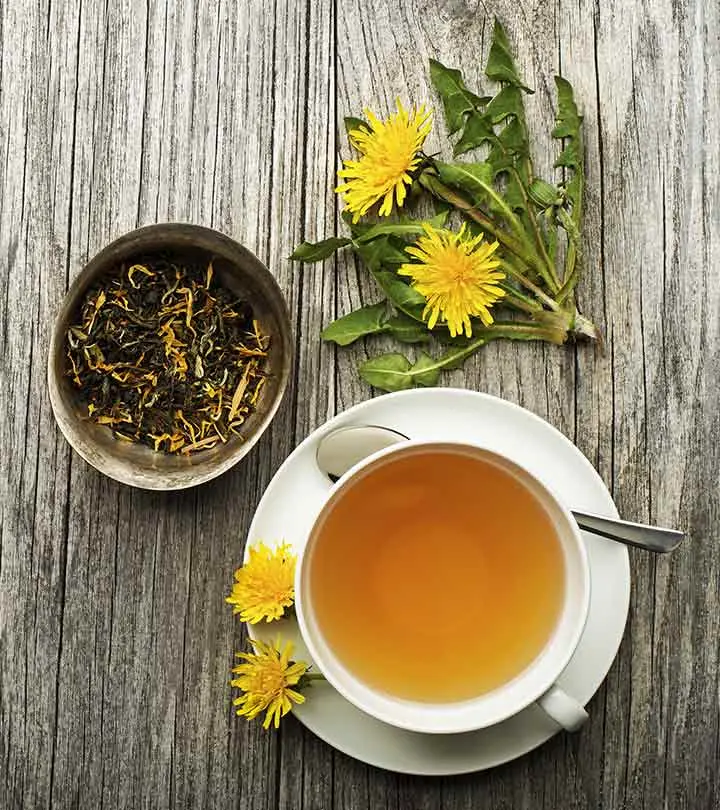




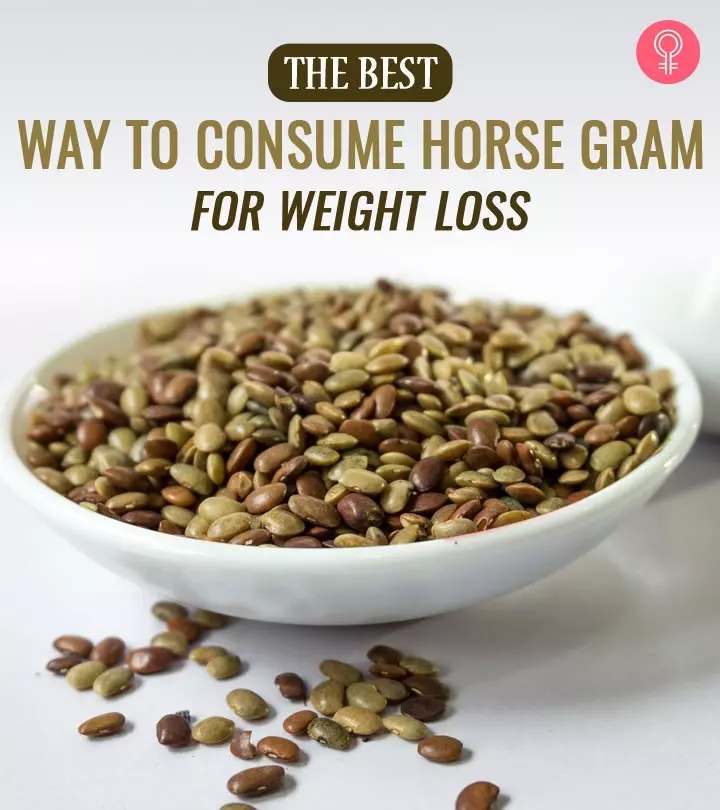



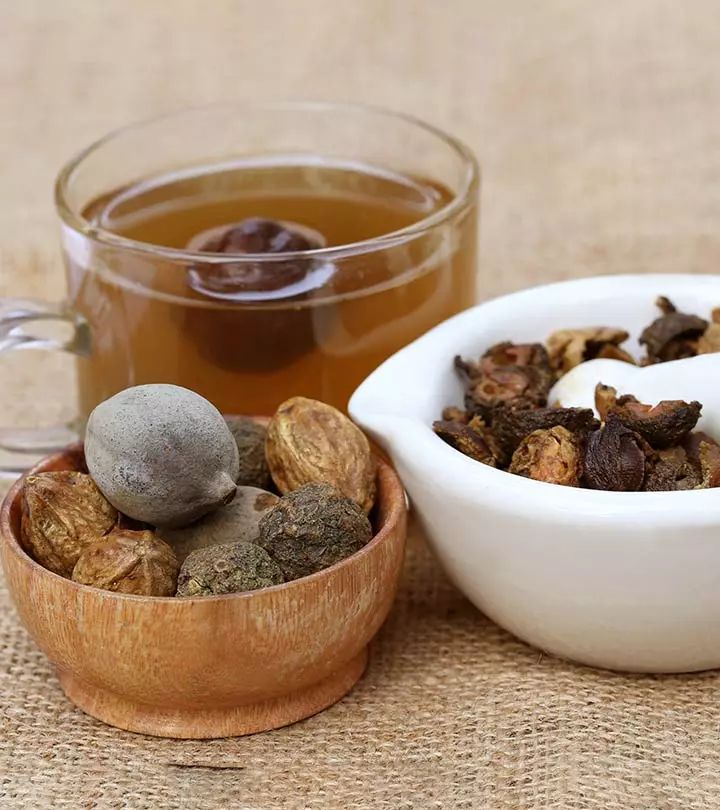


Community Experiences
Join the conversation and become a part of our empowering community! Share your stories, experiences, and insights to connect with other beauty, lifestyle, and health enthusiasts.